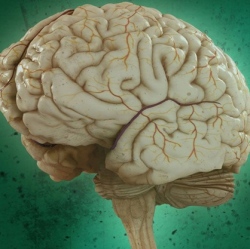
Scientists have found five key signs of Alzheimer’s that can be detected up to 25 years before the onset of the degenerative disease, a finding which they say could lead to its early diagnosis and treatment.
A team at Washington University School of Medicine who looked at families with a genetic risk of the disease assembled a “timeline” of the unseen progress of Alzheimer’s much before the symptoms appear, researchers said.
Experts believe the ability to detect Alzheimer’s early would give the best chance of a successful treatment, the BBC News reported.
The study involved 128 people from the UK, US and Australia, who had a 50 percent chance of inheriting one of three mutations certain to cause early Alzheimer’s, which often develops in people during their 30s and 40s.
This is much earlier than the more common form of the decease which generally affects people in their 60s. Those who carry the mutations will go on to develop the disease.
The researchers took into account the age of the participants’ parents when they developed the disease – and therefore how many years it was likely to be before they too showed symptoms. Scientists underwent blood and spinal fluid tests as well as brain scans and mental ability assessments.
The earliest change – a drop in spinal fluid levels of the key ingredient of Alzheimer’s brain plaques – can be detected 25 years before the anticipated age of disease onset, they suggest.
Raised levels of tau, a structural protein in brain cells can be seen in spinal fluid at 15 years, and shrinkage can also be detected within parts of the brain. Scientists suggest that changes in the brain’s use of the sugar glucose and slight memory problems become apparent 10 years before symptoms would appear.
Researchers also tested other members of the families without the inherited mutations – and found no changes in the markers they tested for.
“This important research highlights that key changes in the brain, linked to the inherited form of Alzheimer’s disease, happen decades before symptoms show, which may have major implications for diagnosis and treatment in the future, ” Prof Clive Ballard, director of research at the Alzheimer’s Society, said.
